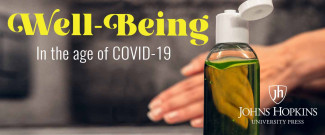
Johns Hopkins UniversityEst. 1876
America’s First Research University
Now Browsing:
Implications of the Coronavirus for Children


By Edward Bell, PharmD, BCPS
Professor of Pharmacy Practice, Drake University College of Pharmacy, Des Moines Iowa
Author, Children’s Medicines: What Every Parent, Grandparent, and Teacher Needs to Know (Johns Hopkins Press Health)
What Symptoms Does Coronavirus Cause, and are They Different in Children and Adults?
Coronavirus is spread among people primarily through the respiratory tract, by coughing, sneezing, and even talking. This is the reason for “6-foot social distancing.” The coronavirus can stay viable (“alive”) on various surfaces, such as door handles or grocery carts for a brief time, although it is not yet known how long. This is why it is best to wash one’s hands often, especially when making trips to a grocery store or a pharmacy for needed items.
Symptoms of COVID-19 infection and disease are relatively similar to other respiratory tract infections, with common symptoms of cough, nasal congestion, runny nose, fever, and sore throat. It is possible that some children and adults can be infected with the COVID-19 virus, yet they do not demonstrate any symptoms of infection. New data from COVID-19 cases in China and the US demonstrate that symptoms in children tend to be milder, overall, as compared with adults, although infants and younger children can still be vulnerable to severe infection. For example, preliminary data demonstrate that children are less likely to have fever, myalgia (sore muscles), sore throat, headache, and diarrhea as compared to adults.
Can Any Over-the-Counter (OTC) Medications be Used to Treat COVID-19 Symptoms?
The same OTC medications that can be used to treat viral colds have the potential to benefit children with COVID-19 disease, although this has not yet been fully determined. Of course, it is essential that parents discuss treatment options with their child’s pediatrician or health care provider before administering OTC products to their child. As a reminder, the typical OTC cough-cold multi-ingredient products that are advertised and marketed to stop a child’s cough or relieve their symptoms do not always effectively treat these symptoms in children with a cold, and it can be easy to accidentally give too much of these medicines, especially to younger children. Thus, these products are best not used for any viral respiratory infection. Saline (saltwater) solutions are a safer and a more effective means to clear a child’s stuffy nose. OTC saline sprays, drops, and other products are available. A cold-water humidifier placed in the child’s room can also be very effective at reducing a child’s stuffy nose. Honey (for children > 1 year of age) and mentholated rubs applied to the chest or back can be used to treat cough. Much more information about this is described in the book, Children’s Medicines: What Every Parent, Grandparent, and Teacher Needs to Know.
As fever is a common symptom of many respiratory tract infections, including COVID-19, it can be appropriate to give your child anti-pyretic (anti-fever) medicine, such as acetaminophen (commonly known as Tylenol) or ibuprofen (commonly known as Motrin or Advil). Prior to giving your child acetaminophen or ibuprofen, however, it is best to talk with your child’s pediatrician. Also keep in mind that the main goal of treating a child’s fever is NOT to return your child’s body temperature to normal (98.6° F), but to ensure that your child is comfortable and drinking fluids normally. Children tolerate higher body temperatures better than adults, so a slightly higher body temperature is not a reason for concern. As we know with many other types of infections, a mild-moderate fever can actually be good for a child, as the higher body temperature may help to kill off the virus that is causing the fever.

There is some discussion now in the lay news and the medical literature suggesting that ibuprofen, a medicine considered a non-steroidal anti-inflammatory agent (NSAID), can be dangerous for someone with COVID-19 infection and disease. This information is very speculative and based only upon several COVID-19 adult patients in France given ibuprofen, in a case report. Unfortunately, this information found its way into the media and was reported. The potentially underlying mechanism relates to a receptor on some cells in the body that ibuprofen and other NSAID medicines (such as naproxen) may interact with to allow the COVID-19 virus to more easily enter these cells and reproduce. It is important to consider that the Food and Drug Administration (FDA), the American Academy of Pediatrics, and the World Health Organization (WHO), have clarified that this information is speculative only, and there is no reason that parents should hesitate to give their children ibuprofen for fever or discomfort. As with any medicine, it is always wise to check with your child’s pediatrician prior to giving a medicine to your child.
Are There Prescription or Anti-viral Medicines That Treat All Cases of COVID-19?
The simple answer is no, not yet. However, many anti-viral medicines are undergoing increased laboratory studies and clinical trial testing to determine if a specific anti-viral medicine(s) can effectively destroy COVID-19 or prevent it from replicating and reproducing in the human body. The anti-viral drugs currently available to treat influenza, for example, including oseltamivir (Tamiflu) or baloxavir (Xofluza), do not effectively treat COVID-19. The lay news media has frequently discussed the use of two other medicines, chloroquine and hydroxychloroquine. Unfortunately, the White House has repeatedly discussed inaccurate information about the usefulness of these medicines, and the WHO has now recommended that chloroquine and hydroxychloroquine not be used for treatment of COVID-19.
A very important principle for the public to understand about the widespread use of any medicine when treating diseases in humans relates to proven clinical efficacy and safety, and an evaluation of the medicine’s benefits as compared to its risks. Thousands of chemicals that appear promising as new drugs are tested every day by pharmaceutical manufacturers and academic researchers. Unfortunately, most of these chemicals do not end up as useful medicines available on a pharmacy shelf. A chemical shown to be effective in animal studies or perhaps effective in only several humans as a test trial, does not equate to the medicine being effective, and safe, for larger numbers of humans, for a variety of reasons. As well, all medicines have adverse effects, and some medicines’ adverse effects may be severe enough, that the benefit of the drug does not outweigh the risk of the adverse effect. These evaluations are best determined by controlled studies with many human subjects, and with experts evaluating the results of these studies.
Several good internet sites are available to obtain scientifically accurate and up-to-date information about COVID-19, including the Centers for Disease Control (https://www.cdc.gov/coronavirus/2019-nCoV/index.html), and the American Academy of Pediatrics (www.healthychildren.org).
Edward A. Bell, PharmD, BCPS, is a pediatric pharmacist and a professor of pharmacy practice at the Drake University College of Pharmacy and Health Sciences and the Blank Children’s Hospital and Clinics. He is the author of Children’s Medicines: What Every Parent, Grandparent, and Teacher Needs to Know.
Login to View & Leave Comments
Login to View & Leave Comments


